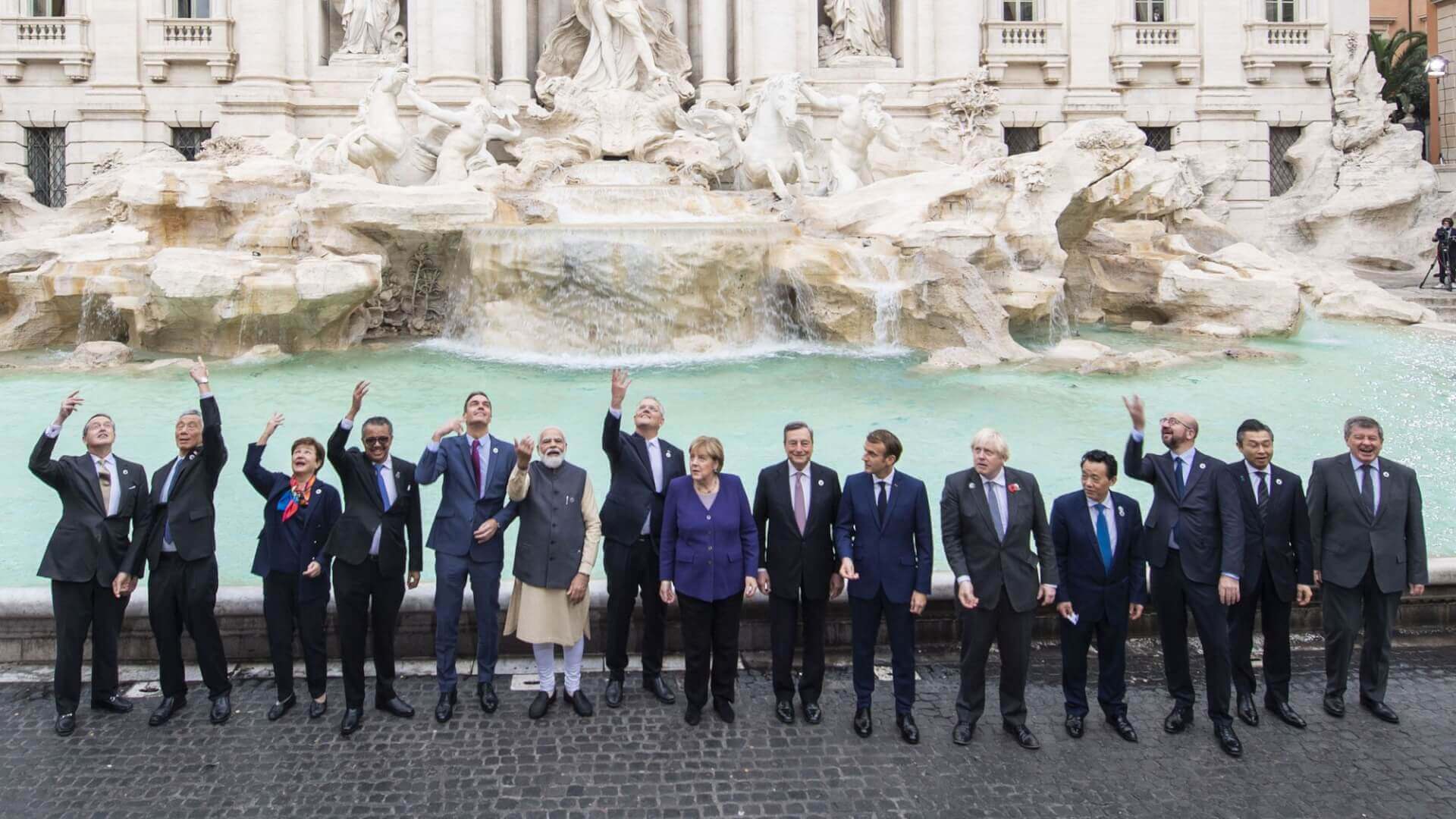Leaders of the Group of 20 (G20) countries met in Rome, Italy on Saturday and Sunday.
According to the joint declaration released at the end of the meeting, the goal of the leaders’ summit was “to address today’s most pressing global challenges ... converge upon common efforts to recover better from the COVID19 crisis, and enable sustainable and inclusive growth.”
The leaders agreed to “pave the way for a global recovery, with particular regard to the needs of the most vulnerable,” including “ensuring food security and environmental sustainability.” In addition, they agreed on a “shared vision” to combat climate change and gender inequality. “We have also further advanced in our common efforts to ensure that the benefits of digitalisation are shared broadly, safely and contribute to reducing inequalities,” the statement said.
In relation to climate change, the leaders reaffirmed their commitment to the Paris Agreement’s goal “to hold the global average temperature increase well below 2°C and to pursue efforts to limit it to 1.5°C above pre-industrial levels, also as a means to enable the achievement of the 2030 Agenda.”
Italian Prime Minister Mario Draghi emphasised the significance of this target, saying that “Now, for the first time, all the countries of the G20” acknowledge the scientific merit of the 1.5-degree goal.
The leaders also committed “to mobilise international public and private finance to support green, inclusive and sustainable energy development” and to “put an end to the provision of international public finance for new unabated coal power generation abroad by the end of 2021.”
The communiqué has received criticism for setting a vague goal of “achieving global net-zero greenhouse gas emissions or carbon neutrality by or around mid-century,” instead of a specific year.
While the mention of attempting to limit global temperature to 1.5°C above pre-industrial levels is an ambitious step forward, members failed to outline how their countries would achieve this goal.
The statement vaguely called on member countries, who account for a vast majority of the local greenhouse gas emissions driving global warming, to take “meaningful and effective actions” through “different approaches” and “through the development of clear national pathways that align long-term ambition with short- and medium-term goals.”
The New York Times called the agreement “largely symbolic,” quoting Jennifer Morgan, the executive director of Greenpeace International, who called the agreement “weak,” because it “lacked ambition and vision.” Similarly, Jörn Kalinski, a senior adviser at Oxfam, called the pact “muted, unambitious and lacking in concrete plans.”
The pledges on climate change come just ahead of the 26th UN Climate Change Conference of the Parties (COP26) Summit to be held in Glasgow, Scotland, United Kingdom (UK), between 31 October and 12 November 2021. The United Kingdom and Italy will co-preside over the meeting. The meeting, which will solely focus on climate action, aims to “accelerate action” towards the goals set by the Paris Agreement and the UN Framework Convention on Climate Change (UNFCCC).
G20 Leaders’ Summit Declaration Criticised for Being Largely Symbolic and Lacking Ambition
Jennifer Morgan, the executive director of Greenpeace International, who called the agreement “weak,” because it “lacked ambition and vision.”
November 1, 2021

SOURCE: G20
